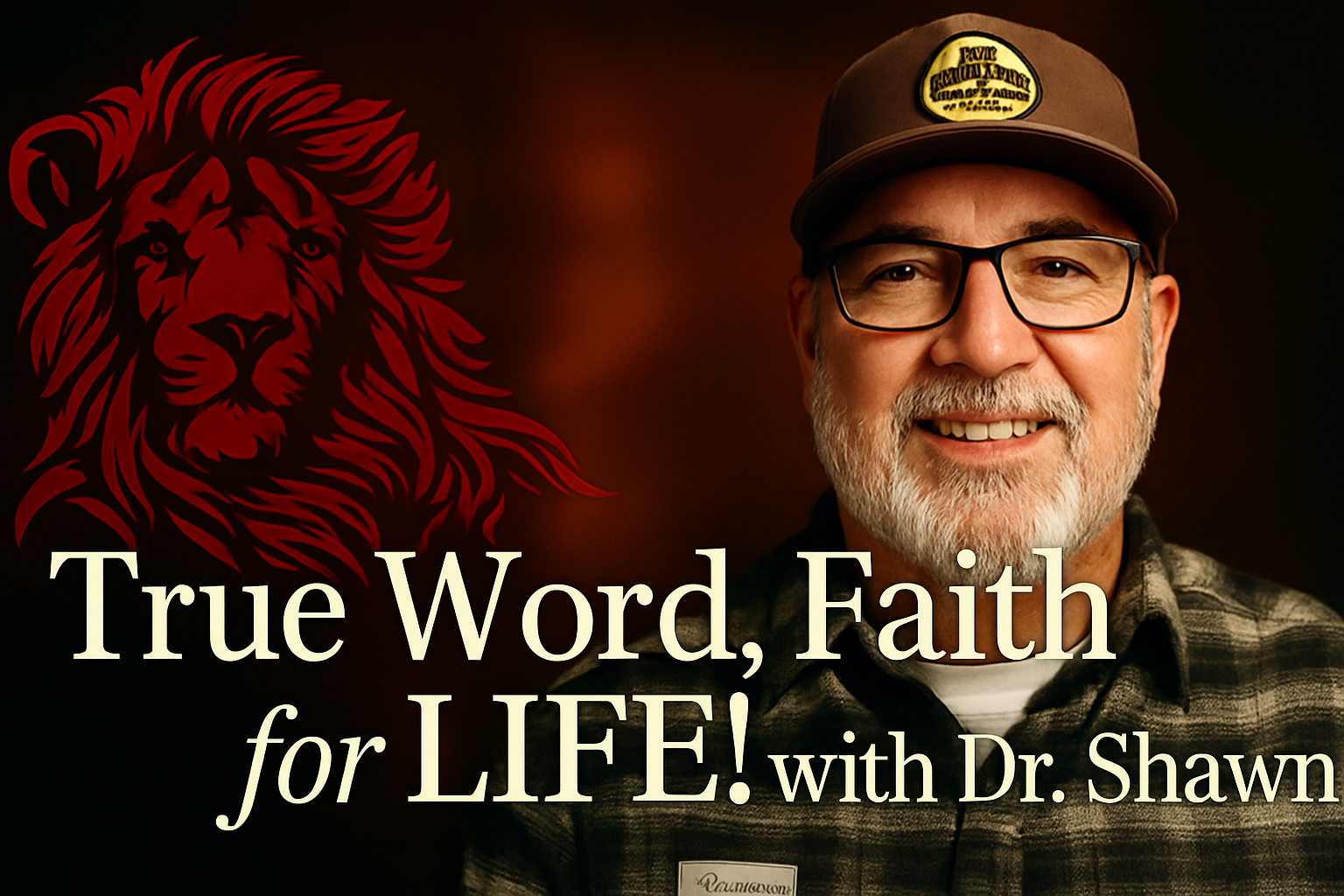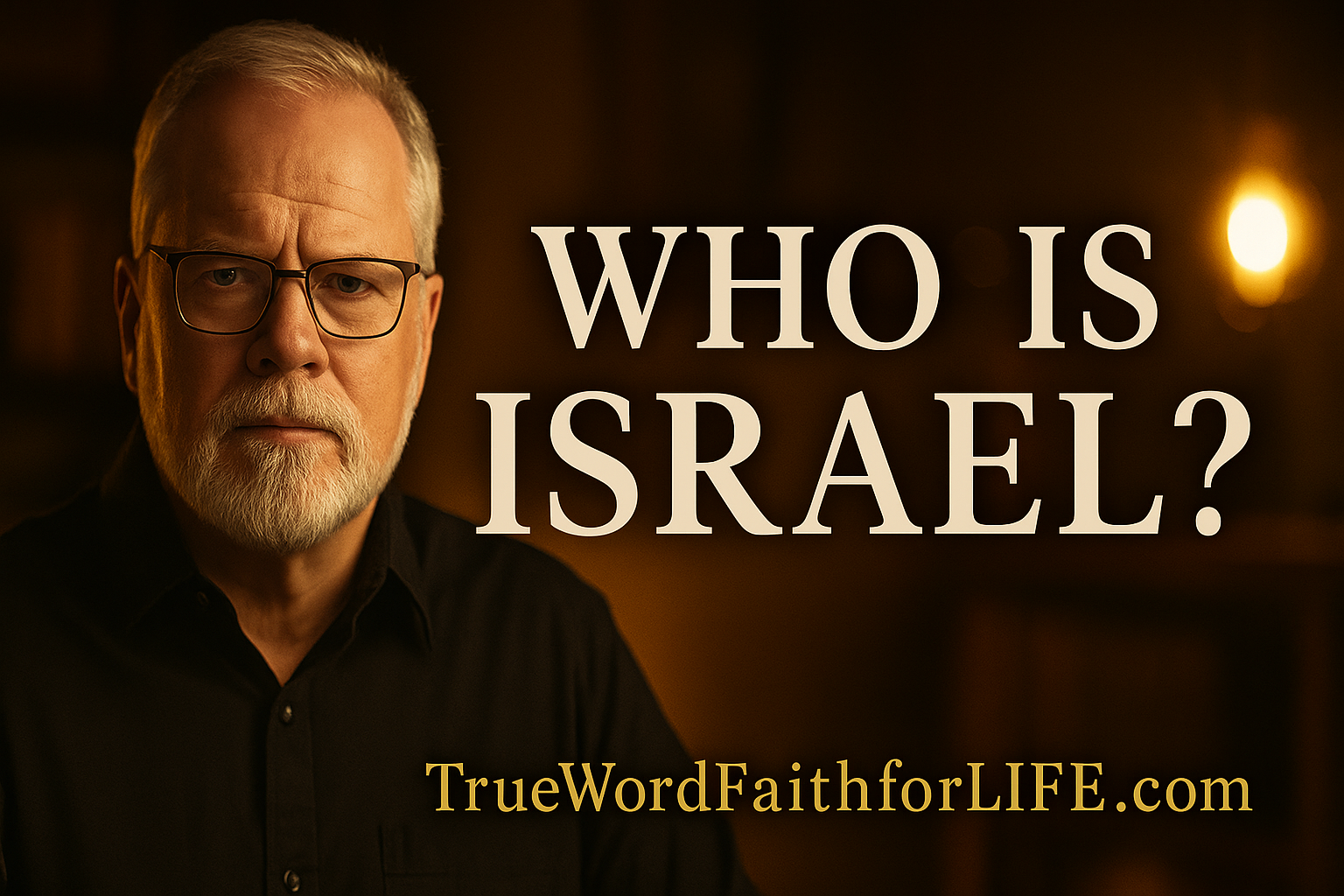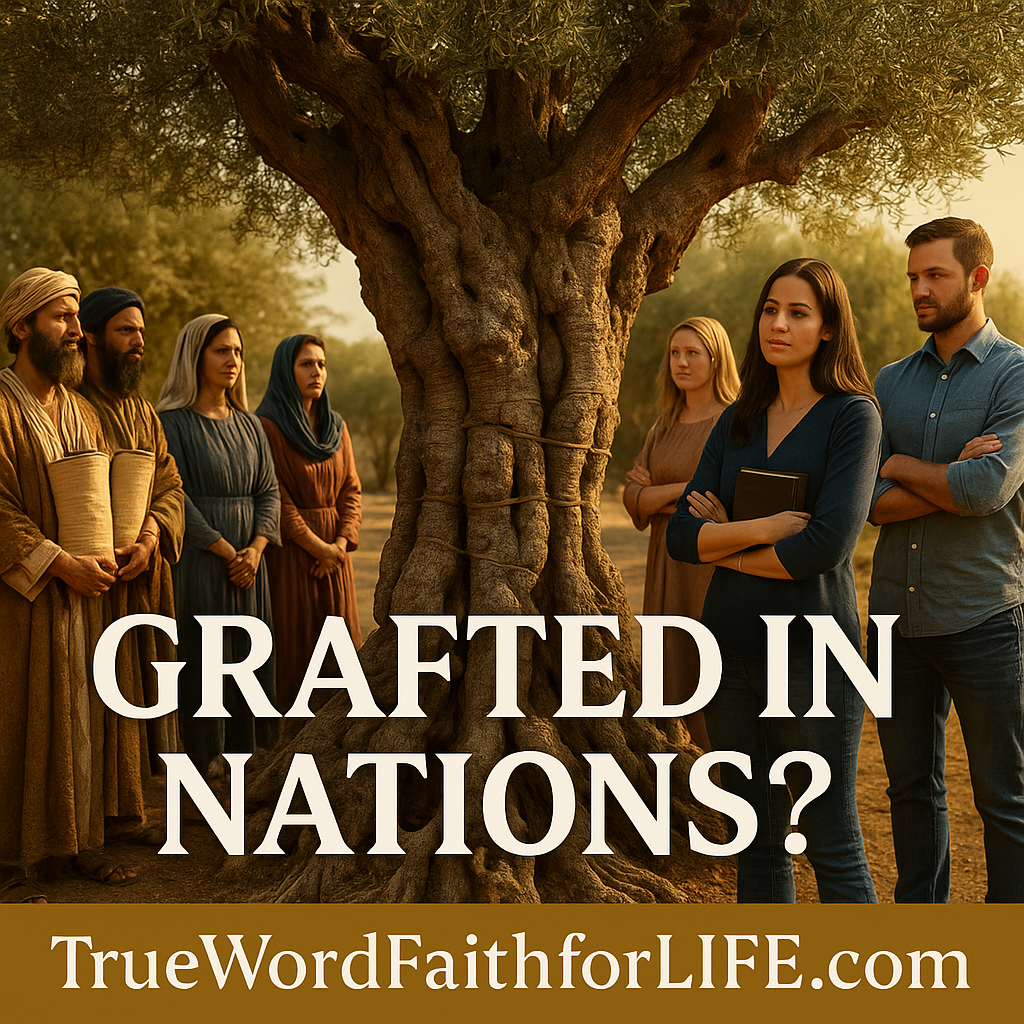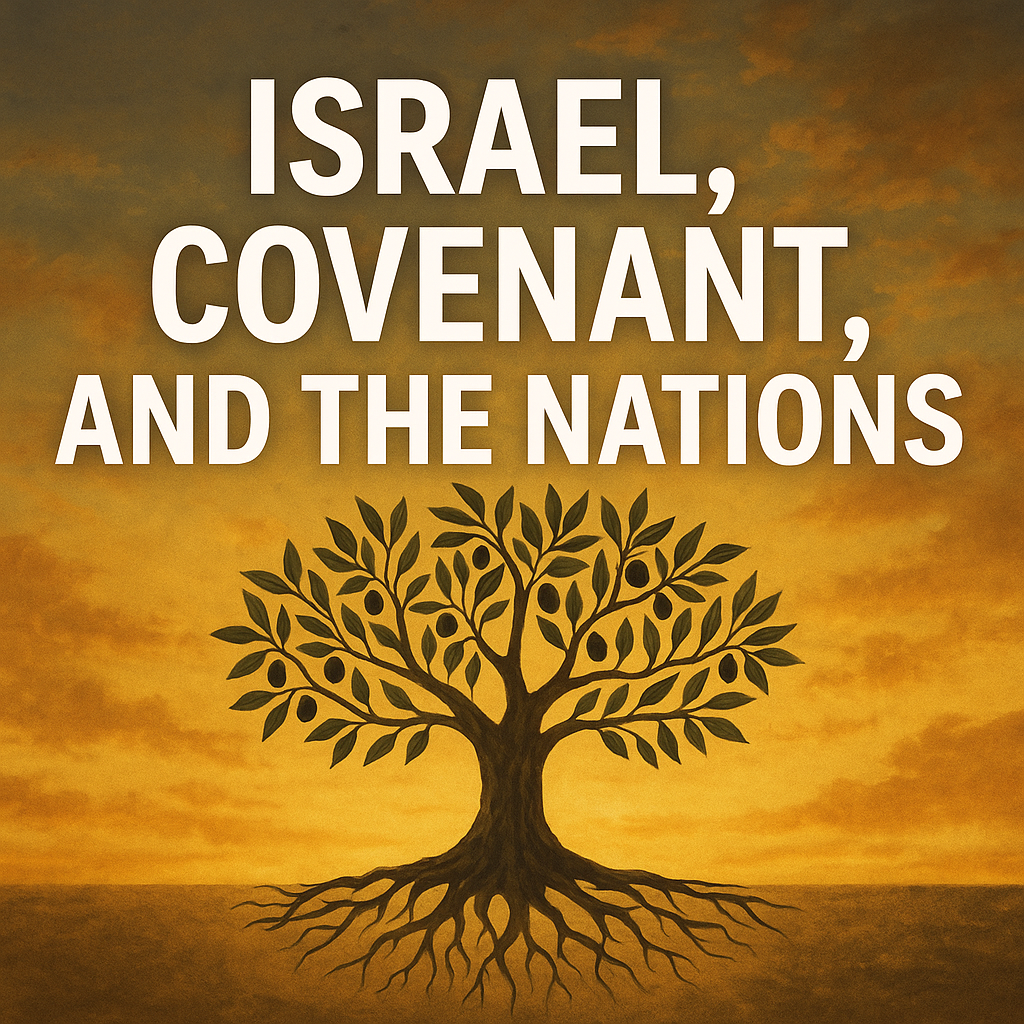Israel, Covenant, and the Nations | Romans 9–11 Explained
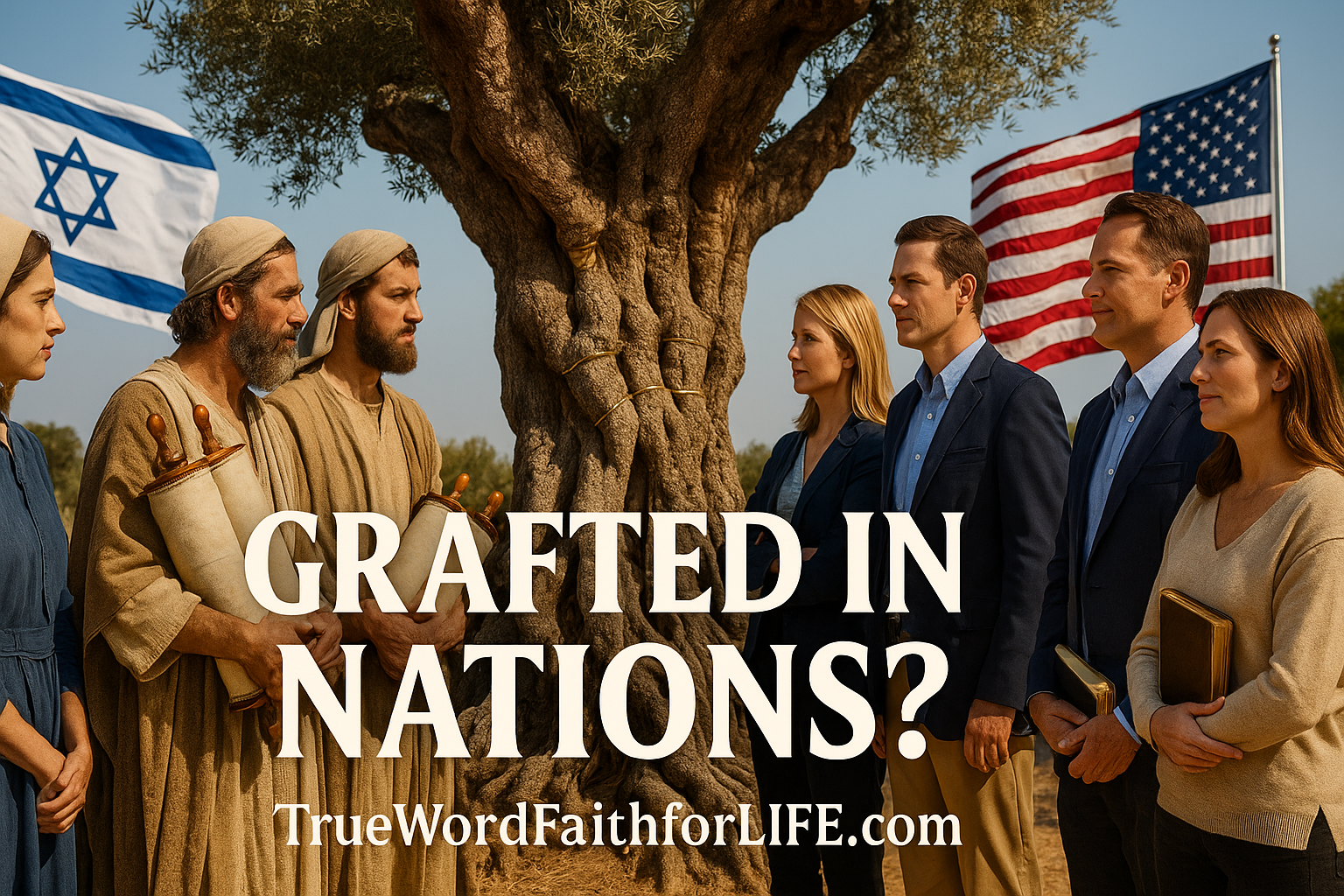
Taco Tony says, "Like & Subscribe!"
(Remember to LIKE & SUBSCRIBE! Hit the Bell for ALL notifications!)
Israel, Covenant, and the Nations
Series: Romans — Covenant, Faithfulness, and the Grafted-In Life
© 2025 Dr. Shawn M. Greener. All Rights Reserved.
True Word, Faith for LIFE!
What if Israel’s stumbling was never her end? What if the grafting-in of the nations was never meant to replace her, but to restore God’s plan from the beginning? What if the olive tree in Romans 11 was not a new invention, but the same covenant root God planted in Abraham, now bearing the fruit of mercy for every nation?
Romans chapters nine through eleven are among the most misunderstood in all of the Bible. Yet they hold the very key to understanding how God’s faithfulness weaves through Israel, the nations, and you.
Paul begins with anguish. “I could wish that I myself were accursed and cut off from Messiah for the sake of my people,” he writes in Romans 9:3.
Why such sorrow?
Because Israel, the very people entrusted with adoption, glory, covenants, Torah, worship, and promises, had missed recognizing her Messiah.
And yet, Paul insists, the word of God has not failed. In Greek, he writes “ekpeptōken,” meaning “fallen out” or “failed to stand.” No, the covenant still stands. It was never about ethnicity, but about promise. Abraham believed before circumcision. Israel’s election was never favoritism; it was faithfulness.
The Ancient Near Eastern world understood covenant not as a contract, but as loyal relationship. God’s choice of Israel was His commitment to bless all nations through her. “In you all the families of the earth will be blessed,” God said to Abraham. That is the heartbeat of Romans 9–11.
But Paul also saw what happened when Israel pursued righteousness as if it were earned by works rather than received by faith. Many sought tzedakah, righteousness, through effort instead of trust. Yet in doing so, they missed the very one through whom righteousness comes. Meanwhile, the Gentiles, the goyim who had no covenant history, were being grafted in by grace.
That grafting is not replacement, but invitation. Romans 11’s olive tree imagery paints a living picture. The root is Abrahamic covenant. The cultivated branches are believing Jews. The wild branches are believing Gentiles. Together, they share in the rich sap of the same root.
Paul’s warning is urgent: “Do not boast against the branches.” The Greek term “kauchaomai” means to boast in oneself. You stand by faith, not superiority. The same God who grafted you in can graft Israel back in again.
Dr. Michael Heiser helped illuminate this through what he called the “Deuteronomy 32 worldview.” When the nations rebelled at Babel, God disinherited them, assigning them to lesser powers. But He claimed Israel as His portion, His covenant partner. Through Messiah, that divine reclamation began. The nations are being gathered back, even as Israel is being awakened. The story is restoration, not replacement.
Paul reveals the mystery in Romans 11:25–27. “A partial hardening has come upon Israel until the fullness of the nations has come in, and in this way all Israel will be saved.” The Hebrew word “sod” means divine secret or counsel. The mystery is this: God’s mercy flows in both directions. The Gentiles are brought near, and Israel is provoked to return.
Then, Paul erupts in worship. “Oh, the depth of the riches and wisdom and knowledge of God!”
The Greek word “doxa” mirrors the Hebrew “kavod,” the weight of glory. It is as if Paul cannot contain his awe at God’s plan, one too deep for human pride, too wide for tribal arrogance, and too rich to fit into any single nation.
You and I stand in that mercy today. We are grafted in, not by heritage, but by grace. Israel’s covenant root holds us all. Her story is not finished, and our story is tied to hers.
So here is the challenge and the choice. Will you live humbly grafted into that story, remembering your root and walking in mercy? Or will you risk arrogance, forgetting that faith was always God’s gift and never our accomplishment?
Beloved, Romans 9–11 calls us back to humility. There is no boasting, only awe. No division, only covenant. No replacement, only redemption.
If this message stirred your heart, think of one person who needs to hear it. Share it! Your share might be the very tool God uses to open someone’s heart to the truth of His faithfulness.
Shalom b’Shem Yeshua
© 2025 Dr. Shawn M. Greener. All Rights Reserved.
True Word, Faith for LIFE!
Study Guide – Episode 25: Israel, Covenant, and the Nations
Series: Romans — Covenant, Faithfulness, and the Grafted-In Life
© 2025 Dr. Shawn M. Greener. All Rights Reserved.
True Word, Faith for LIFE!
Summary
Romans chapters nine through eleven form the theological and emotional climax of Paul’s letter. Here Paul reveals that God’s covenant faithfulness has not failed, even though many in Israel did not recognize Yeshua as Messiah. Israel’s story is not over. Rather, her temporary stumbling has opened the door for the nations, so that mercy might reach all. Yet the story ends not in division but in reconciliation. Jew and Gentile together form one covenant people, rooted in the same olive tree of Abraham’s promise.
Paul’s lament for Israel reveals his deep love for his people and for the God who keeps His promises. The covenant was never about ethnicity but faith. Abraham believed God and it was counted to him as righteousness (Genesis 15:6).
That same faith joins both Jew and Gentile to Messiah today!
In the Ancient Near Eastern worldview, covenant was a binding relationship of loyalty and love. God’s choosing of Israel was His promise to bless the entire world through her. In Messiah, that promise has reached the nations. But Paul warns Gentile believers not to boast. They stand by grace alone, grafted into Israel’s covenant root. The same God who grafted them in can graft Israel back in again; and He will.
Ultimately, Romans 9–11 is not about exclusion or replacement but restoration. The hardening of Israel is partial and temporary, until the fullness of the nations has come in. Then, as Paul writes, “all Israel will be saved.” The covenant story ends with awe: “From Him, through Him, and to Him are all things.”
Key Hebrew and Greek Terms
•Covenant (בְּרִית, berit) – A binding relationship of loyalty, not merely a contract.
•Righteousness (צְדָקָה, tzedakah) – Covenant alignment and relational faithfulness, not legal perfection.
•Olive Tree (ἡ ἐλαία, hē elaia) – Symbol of covenant continuity and shared spiritual inheritance.
•Root (ῥίζα, rhiza) – Source or foundation; in Romans 11 it refers to the Abrahamic covenant.
•Boast (καυχάομαι, kauchaomai) – To take pride in oneself. Paul warns Gentiles against boasting over Israel.
•Mystery (μυστήριον, mystērion / סוֹד, sod) – A divine secret or counsel revealed in time. Here, the union of Jew and Gentile in Messiah.
•Heiser’s Deuteronomy 32 Worldview – Dr. Michael Heiser explained that after Babel, God disinherited the nations (Deut. 32:8–9) and chose Israel as His portion. Through Messiah, those nations are now being reclaimed, restoring God’s original plan to bless the world through Israel.
Discussion Questions
1. Why does Paul’s sorrow for Israel reveal the depth of his understanding of God’s covenant?
2. How does understanding covenant as relationship, not contract, change your view of faith and salvation?
3. What is the significance of being “grafted in” rather than “replaced”?
4. How does Dr. Heiser’s Deuteronomy 32 worldview illuminate Paul’s teaching about Israel and the nations?
5. What might boasting look like in today’s church, and how can humility restore covenant unity?
6. How does the olive tree imagery reflect God’s continuing plan for both Israel and the nations?
7. How can modern believers live as “grafted-in” partners rather than detached individuals?
Practical Application
Romans 9–11 invites believers to humility. To understand that the covenant root we stand on is Israel’s story, not our own invention. The faith that grafts us in is not superiority but gratitude. Every believer must remember that salvation is not a trophy of merit but a testimony of mercy.
To live grafted in means to live in faithful gratitude—praying for Israel’s restoration, honoring the Jewish roots of our faith, and living as covenant witnesses to the nations. It means walking in humility, resisting spiritual arrogance, and loving others with the same mercy that brought us near.
When you remember the olive tree, remember this: you do not support the root; the root supports you. Live in reverence, walk in mercy, and reflect the covenant love that binds Israel, the nations, and every believer together in Messiah.
Bibliography
•The Lexham English Bible (LEB)
•The Complete Jewish Study Bible (CJSB)
•Dr. Michael S. Heiser, The Unseen Realm: Recovering the Supernatural Worldview of the Bible
•Dr. Skip Moen, Hebrew Word Studies
•The Complete Word Study Dictionary: New Testament, AMG Publishers
•Theological Wordbook of the Old Testament, Moody Press
Shalom b’Shem Yeshua
© 2025 Dr. Shawn M. Greener. All Rights Reserved.
True Word, Faith for LIFE!
of the Way, Ancient Near Eastern context, Hebraic worldview, Michael Heiser Deuteronomy 32, Paul and Israel, olive tree Romans, Israel and Church unity, Torah and grace, Bible study podcast, Christian discipleship, covenant faithfulness, Romans 9 10 11 explained
#Romans11 #IsraelAndTheChurch #CovenantFaithfulness #MessianicFaith #BibleTeaching #TrueWordFaithForLIFE #FollowerOfTheWay #DrShawnGreener #HebraicWorldview #GraftedIn #FaithAndMercy #YeshuaHaMashiach

